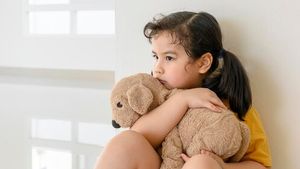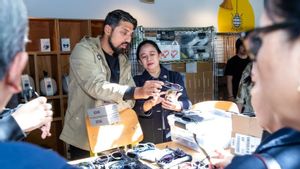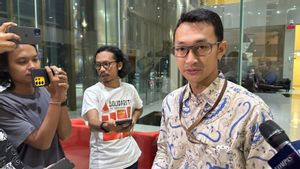YOGYAKARTA The main character syndrome, recognized immediately when a child behaves dramatically and often seeks validation and caper, especially online. According to child psychologist Caitlin Slavens, MC., this syndrome is not actually a clinical term. But the nickname with the phrase main character' illustrates when someone acts like a film star and other people are just supporting actors.
Basically, the main character syndrome is not bad, said Slavens as reported by Parents, Thursday, January 9. For teenagers, it is normal for them to think about how others view them. However, this can also make children and teenagers separate from the reality or feelings of others if they are too excessive.
The main character syndrome (Main Character Syndrome/MCS) is a term that is often used to describe a mindset where individuals view themselves as the protagonist in life stories. Sometimes, explains clinical worker Shari B. Kaplan, LSCW., ignoring the experiences of others.
"While this may be part of normal teenage developments as they shape their identity. This can turn into an unhealthy territory when empathy and awareness of others are reduced. However, this can be prevented, with the right kind of support in childhood with parental empathy and support for the child's emotional experiences such as fear, sadness, and disgust," Kaplan explained.
According to Slavens and Kaplan, the symptoms of major character syndrome are not meant to be a medical diagnosis. It only describes the behavior of children or adolescents who display excessive stories about personal experiences, commit to conversations and events around themselves, focus on appearance and presentation, be reluctant or unwilling to engage in other people's experiences, a curated online presence to show drama and perfection, as well as deforming or distorting minor events excessively to match the main character channel''.
The main character syndrome can be playful and harmless, said Slavens. But at extreme points it can mark a struggle for self-esteem and deep connection.
Remaja can carefully curate posts, screen photos, and compose the perfect narrative. The pressure to present an ideal life can obscure the boundary between reality and performance. Each like or comment reinforces the idea that their online persona are their true identity, making it harder to just be themselves, "explained Slavens looking at social media phenomena that are practically designed for main character syndrome.
SEE ALSO:
So does the main character syndrome have a psychological impact on children and adolescents? A teenager may be caught in the trap of other people's perspectives in relation to self-esteem. Obviously psychologist Brett Biller, PsyD., teenagers and even adults think that the information and stories shared by others on social media reflect reality. In fact, the content in it is selected and curated by the account owner. Including they actually want other people to see, hear, and believe the whole state'' on social media.
This is what causes problems, because it makes teenagers tired emotionally and cut off from their true identity. Especially when they upload content that describes the syndrome of the main character. This character is considered as an authority that is not expected to have an impact. By creating the main character, a person can lack confidence and be influenced by crissisism. They also adopt a selective reality depicted on social media.
The impact on psychology can result in pressure because they are not sure that their hopes can be realized. The social impact, they feel underestimated or neglected when interacting in the real world. Not always negative, said Slavens. The main character syndrome is also positive. At some level, helping children are encouraged to believe in themselves, have ambitions, and believe that life is worth celebrating. Children and adolescents dare to take the risk of trying new things. But everything must be done in balance. Children and adolescents can still be the main characters in their lives without ignoring others. It is also important that children and adolescents have a community to build a healthy social life.
The English, Chinese, Japanese, Arabic, and French versions are automatically generated by the AI. So there may still be inaccuracies in translating, please always see Indonesian as our main language. (system supported by DigitalSiber.id)



















